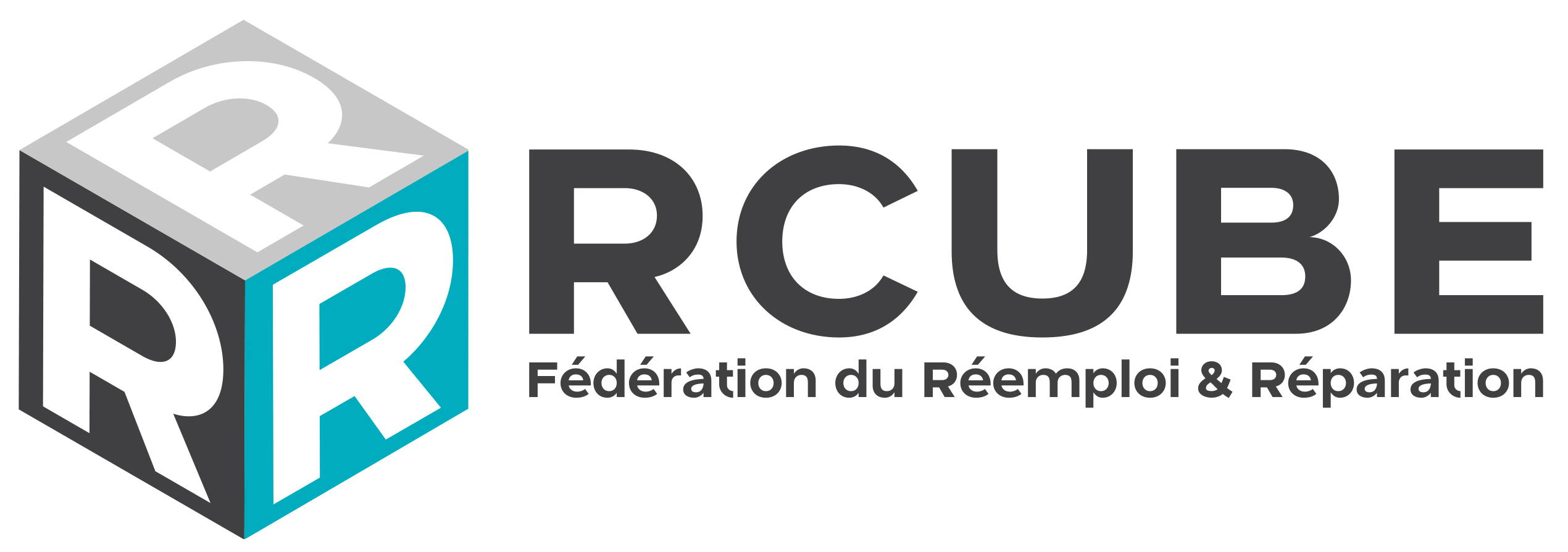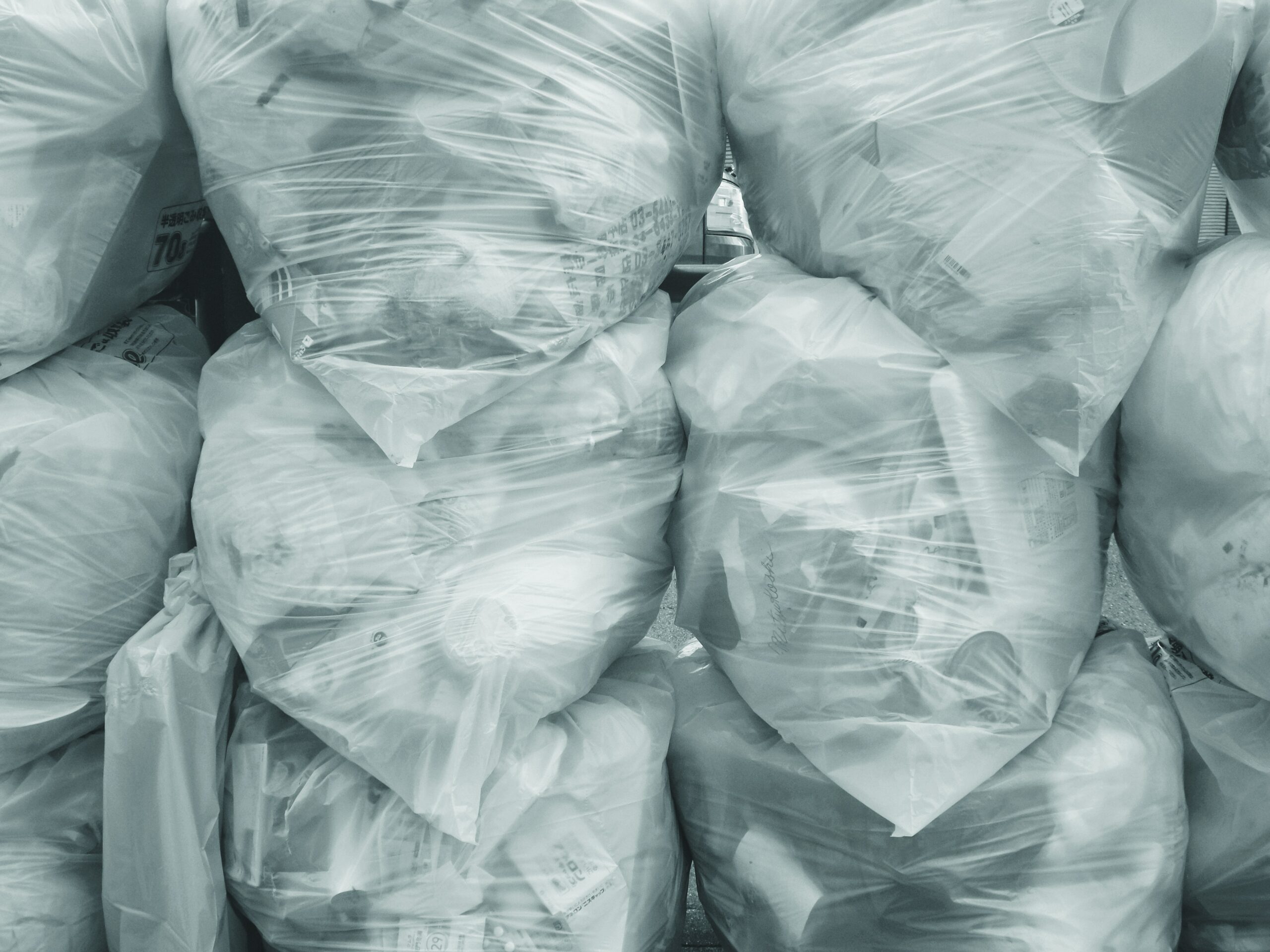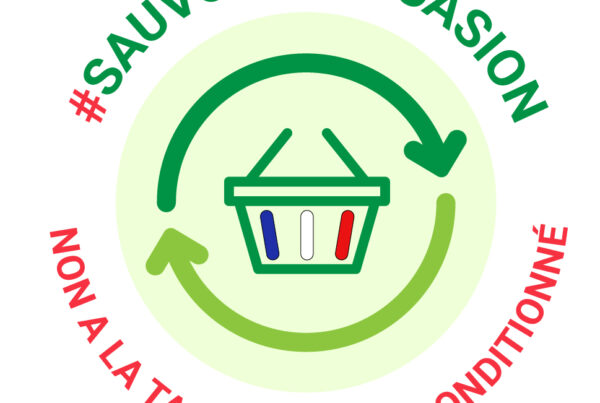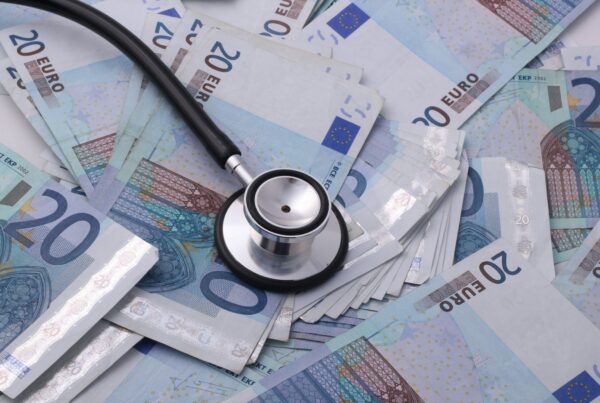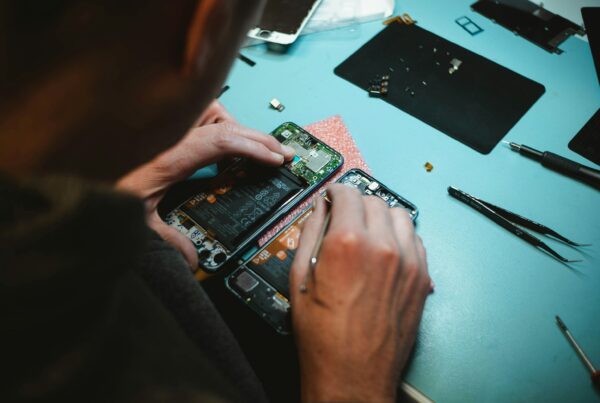Collective position paper: for a new quality of life!
Rcube federates French players in the reuse and repair sector who share the following objectives: to create a virtuous circular economy, to work together to strengthen cohesion and cooperation between players in the second-hand sector, to develop consumption patterns that combat waste and waste production, and to reassure consumers through the creation and development of best practices. Today, the federation has over 100 members (associations, companies, independents, start-ups, distributors, manufacturers, networks of players, etc.) from various market, non-market and social economy (SSE) sectors. They work together in numerous commissions and working groups to co-construct common projects such as the "Label Produit Refurbished " to certify the quality of reconditioned processes and products.
The reuse market provides part of the answer to the environmental challenges facing our societies, by reducing the waste of unused products that can be reconditioned or repaired in the event of breakage or faulty condition.
In fact, almost 40 million goods break down without being repaired every year, and end up as waste, while some 113 million cell phones are said to lie dormant in French people's drawers, representing more than 3.60 billion kilos of wasted CO2 equivalent (on average, 30 kg of CO2 equivalent are avoided per reconditioned phone). Yet it is estimated that only 10% of telephones are reused in France each year (2.1 million). The possibilities for goods to be re-used are far from fully known, and beyond the digital sector, re-use creates jobs in sectors as diverse as construction, garden equipment, textiles and fashion, packaging, furniture, sports equipment, public works, the automotive industry, electronic payment systems and catering, to name but a few.
The reuse market also responds to societal demand for more socially and environmentally responsible consumption. The sector's players have been much in demand to support the French, particularly during the confinement period, whether to enable them to telecommute or distance-learn, to repair the equipment of craftsmen and farmers, or even to make masks or supply fabric. Importantly, 77% of Europeans say they prefer to repair their products rather than buy new ones.
In 2018, the federation estimated the annual turnover of the reuse and second-hand sector at 100 billion euros and 100,000 jobs integrating all sectors. Rcube estimates that, with the right level of digital and industrial investment, this market could reach 300 billion euros in sales in France and represent 700,000 direct and indirect jobs within 3 years. In a particularly uncertain economic climate, the reuse and repair sector therefore needs to be fully integrated into recovery plans, to help reorient the French economy towards greater resilience, sustainability and circularity.
Conditions to be met to develop strong French and European industries
1. A clear and ambitious legal framework
Rcube welcomes the adoption of the French law on the fight against waste and the circular economy (LAGEC) last February. For four years, the Federation and its members have actively collaborated with all stakeholders in drawing up the Circular Economy Roadmap (FREC), participating in working groups on the reparability index and organizing numerous meetings of open commissions (label, financing, training, etc.) or national meetings such as the Etats Généraux du Reuse , which we organize every year. Numerous application texts are currently under discussion, and the Federation is keen to put forward its proposals:
- The definition of reconditioning (art. 37) must specify the criteria:
- A reconditioned product is one that has already been marketed for the first time;
- A reconditioned product has been checked and has at least all the functional characteristics or equivalent of the original product, as well as its legal guarantees (CE standard, SAR, approvals, marking, etc.);
- A distinction will have to be made between the repairer, the service provider and the reconditioner, the latter becoming the owner of the product he reconditions or has reconditioned;
- The initial product must be usable and, in particular, must not be protected by manufacturer's patents or software or patents that prevent it from being reconditioned or repaired;
- Products that can be labelled "reconditioned" should be explicitly recognized as products with positive environmental and social externalities and thus eligible for clear and favourable tax treatment:
- A reduced VAT rate because it is a social activity and a waste treatment service;
- Re-users - reconditioners and repairers - should be excluded from the obligation to calculate the reparability index: as distributors and sellers, they should be able to display the original index that manufacturers or importers are obliged to pass on to them.
- Create a public-private financial fund for reuse and repair with :
- Cooperative governance: this fund should be managed on a collegiate basis by reemployment players from both the commercial and non-commercial sectors.
- 500 million euros in financial resources to support reuse: A portion of the 1.5 billion euros collected per year in all EPR channels as eco-contribution could be earmarked for calls for projects aimed at the SSE, market players wishing to switch to SSE status, industrial or R&D projects, or training and campaigns aimed at the general public. This fund could be used to support voluntary reuse companies in their transition to cooperative status.
These investments could be earmarked to finance various projects in the sector, including :
- Financing of industrial units: participation in the financing of industrial premises with shared storage space, test machines, repair workshops, financing the relocation of high-dependency product manufacturing for repair companies;
- Fund the creation of recycling centers and collection, repair and reuse units in partnership with all waste collection centers to recover products and materials before they reach waste status;
- Finance the implementation of logistics and transport solutions for used equipment to preserve its integrity and promote the development of Reverse Logistics;
- R&D: financing innovative projects (repair and reuse techniques - change of use, transport, robotized sorting, etc.);
- Training: set up training courses in reuse professions (recycling / methodical disposal in the building and public works sector - specialized repairers, etc.) and promote these jobs for the future;
- Awareness-raising campaign: financial support for "don't throw away, think repair and reuse" awareness-raising campaigns by reuse channels and reuse players aimed at private individuals and professionals, with the gold medals from the 2024 Olympics coming from French telephones[A2].
- Allocation of grants conditional on projects being new and/or belonging to the SSE.
- Review the governance of EPR sectors:
Market players in the field of reuse must be integrated into the governance of eco-organizations, so that they can take part in discussions on the challenges facing the sector and the allocation of eco-contributions, and as a priority be part of the stakeholder committees of each eco-organization. Their integration could take place when the eco-organizations' approvals and their specifications are revised, giving access to flows to reuse players.
To go further, it seems important to encourage the creation of eco-organizations by used-product recovery objective, in line with the hierarchy defined for French and European law: create one or more eco-organizations for reuse per EPR channel, which would make it possible to really favor reuse over recycling, contrary to the current practices of eco-organizations.
- Create and participate in the Reuse Observatory, bringing together all products in order to produce studies and draw up an inventory of the sector by calling on players in the field (inventory of re-use in France, identification of technical feasibility, study of economic models, experimentation, etc.).
2. A healthy market for a more resilient national economy
Putting a stop to unfair competition:
The reuse and repair sector is facing unfair competition from certain foreign players in the reconditioning sector, via " market places ". These marketplaces pit players from all over the world against each other, with the main comparative criterion being the selling price, and no greater transparency. Many refurbishers of digital and other equipment selling on these platforms suffer from unfair competition from :
- Evading various tax measures to which French players in the new and refurbished sectors may be subject (VAT, CFE, etc.);
- No office in the country of sale, so no fixed costs or social charges;
- Without the provision of certain services such as customer relations and after-sales service, or the desire to establish a long-term position in the market;
- Private copying does not apply to reconditioned products.
Rcube calls for :
- Reflect on these behaviors through verifiable controls of compliance with fair and transparent specifications applying to suppliers and e-commerce platforms.
- Give priority to local players and the creation of French and European jobs.
- Natural competition with new-build prices
What's more, refurbished products naturally face competition from new products. Those involved in refurbishing fear that, with the economic crisis looming, the price of new products will fall to the point where it is less than the price of repair for the consumer. We are therefore calling for price signals in favor of reconditioned products, given their positive environmental and social externalities, and for product repair charges to be no more than 30% of the price of a new product.
- Gaining independence
Access to secondary raw materials and flows of unsold or used equipment can be complicated for players in the sector, who depend on :
- eco-organizations, in a quasi-monopolistic position, to obtain flows of products for reconditioning;
- from new-build suppliers, often from abroad, to obtain spare parts, and their (lack of) availability and/or price is a real obstacle.
To facilitate repair and reconditioning, the players in the reuse sector are calling for :
- the creation of a Franco-European supply chain for standardized and/or reconditioned spare parts;
- reform of the legal framework governing the status of waste, which poses barriers to entry into the reconditioning market, in order to encourage innovation and the creation of new sectors;
- a concerted effort by players in the reuse, SSE and recycling sectors to collect and sort equipment.
Traceability of secondary raw materials and used equipment, with a focus on excavated soil from the public works sector
The debates that took place during the examination of the LAGEC brought the issue of traceability of raw materials and used equipment to the forefront. This issue, which has become central due to the overexploitation of raw materials, is illustrated in the construction sector by the urgent need to reuse excavated soil. This sector is a symbolic example, since itis not onlythe leading consumer of raw materials, but also the leading producer of waste: 260 million tonnes every year in France. At 160 million tonnes, excavated soil accounts for 70% of the waste produced by the construction and public works sector, and its reuse meets a fourfold challenge:
- recovery of materials and equipment (re-use and re-cycling) ;
- waste recycling ;
- substitution of demand for raw materials ;
- optimization of transport distances and associated greenhouse gas emissions.
The lack of centralized, exhaustive traceability of excavated soil transport severely limits the reuse of good quality soil on other sites or in landscaping, by confining these practices to the informal sector, under conditions that are often opaque. The same lack of traceability applies to other sectors. We expect LAGEC to :
- enhanced traceability, through the declaration of information concerning batches of soil;
- soil quality control, for soil no longer classified as waste (in particular when this soil is reused without first passing through an ICPE classified facility);
- the introduction of Cerema certification for development projects using alternative materials and reclaimed soil as waste.
However, to ensure optimum implementation of the law on excavated soil, RCube calls for the 3 proposals below to be taken into account when drafting the implementing decrees:
- Make ADEME responsible for issuing approvals
ADEME is the most appropriate body to issue this approval. ADEME is firmly committed to the fight against global warming and resource degradation:
- Since its creation in 1991, ADEME has been mobilizing a wide range of citizens and economic players, and helping to finance numerous projects, particularly in the fields of waste and soil.
- ADEME is working on the issues of polluted soil, waste prevention through the 2014-2020 waste reduction and recovery plan, and, more broadly, the circular economy.
- Since 2010, ADEME has been working with BRGM to develop a database dedicated to urban soils, the BDSolU. The aim of this database is to bring together, for the whole of France, all available analyses of urban soils. The aim is to facilitate and optimize the management of polluted sites and soils.
- Make land declaration compulsory for site owners
Under the so-called "polluter pays" principle, adopted by the OECD in 1972, by the European Union via the Single European Act (1986) and by France via Article L110-1, II, 3° of the Environment Code, "the costs resulting from measures to prevent, reduce and combat pollution must be borne by the polluter". To ensure that the "polluter pays" principle is no longer seen as a right to pollute, but as a duty to declare, we feel that the best solution is to make the project owner the declarant. What's more, in addition to a fine, the declaration of excavated soil from construction sites represents a real opportunity for contractors, on three levels:
- Transparency: introduce greater transparency into the value chain by facilitating the transmission of work execution data from service providers in charge of soil evacuation to the client;
- Governance: give contractors the means to monitor and adjust their environmental policies in line with actual performance on their sites;
- Legal : give contractors the means to manage the legal risks they incur as waste producers.
- Integrate the provision of justification for the physico-chemical compatibility of soils with the declaration of information concerning soil batches.
This involves not only declaring the route taken from the producer site to the recipient site, using tracking slips, but also identifying the detailed origin, destination and physico-chemical quality of each batch of soil transported. Particularly in the case of off-site reuse operations, the reporting system to be implemented must also make available all "physico-chemical" or "qualitative" traceability data , enabling validation of the physico-chemical compatibility of excavated soil with the receiving site(s) and its use(s).
Finally, to be consistent, the information to be declared listed above must be supplemented by the provision of a provisional selective excavation plan locating, in depth and on the surface, the excavation areas and depths of each declared batch, and quantifying them (mass balance).
Make reuse and repair the priority for the "treatment" of used and unsold products
Reuse has a better environmental, social and economic impact than recycling (destruction of the product's integrity) and should therefore be promoted as such, in line with the waste hierarchy, so that it becomes a reflex for the "treatment of used products", and/or unsold goods. In fact, reuse enables products to be given a new lease of life, prolonging their use before they are recycled, a process by which they are destroyed and, at best, recovered as raw materials:
1. Launch a major campaign to raise awareness of the benefits of reuse and repair
The environmental, societal and economic benefits of the reuse and repair sector should be promoted as part of a wide-ranging information campaign run by public authorities, to ensure that they are fully understood and taken on board by the public at large. This "Don't throw anything away, choose to have your equipment repaired or buy reconditioned products" campaign could, for example, be integrated into the "Long Life for Objects" initiative, which aims to prioritize the different ways of extending an object's lifespan according to its environmental impact:
- Reuse
- Refurbishment
- Repair
- Reuse
- Recycling
- Energy recovery
2. Set up a collection circuit for refurbishable products
As mentioned above, one of the challenges in developing the reuse and repair sector lies in securing the collection of raw materials. To this end, Rcube proposes to launch several types of action:
- Give priority to re-use by demanding that all unsold or used products go through re-use actors to be sorted, tested and directed towards the best sales or re-use channel. Set up a control system to ensure that eco-organizations, local authorities and recycling operators promote Reuse before destruction.
- Raising consumer awareness:
A lot of equipment is stored and unused: Rcube is proposing to support a national communication campaign to get everyone thinking about putting this real goldmine back on the market for players in the sector in search of flow.
- Encourage administrations and large companies to set an example:
In addition, government agencies and large companies should be encouraged, if not obliged, to entrust their used equipment to French reuse players (SSE and commercial sector), rather than having it destroyed by recyclers (whether or not via eco-organizations) or sold to companies with little regard for the traceability of flows.
Various mechanisms could be put in place:
- collection of used administrative equipment (computer and telephone equipment, gardening equipment, furnishings, etc.);
- The deletion of data on the administration's website by trained technicians is paid for by the administration;
- promotion of the "reconditioned product label" to buyers, to reassure them of product reliability and flow traceability.
- mobilize large companies and local authorities to support recycling players: entrust them with flows, provide services (inventory, reconditioning, etc.), find premises, simplify administrative procedures.
3. Direct public procurement towards reconditioned products.
RCube calls on the French government to set an example by orienting its public procurement towards reconditioned products, in line with the development of "green public procurement". Various mechanisms could be put in place, including :
- setting a minimum threshold of 20% of waste allocated to re-use in public waste management contracts;
- directing local authority purchases towards re-used products.
Supporting the transition to more sustainable consumption
Citizen behavior is ready to change, but consumer behavior sometimes needs an incentive. While environmental and social criteria are increasingly taken into account, consumer choices are most often motivated by two determining factors: price and trust.
It is therefore necessary to materialize support for reuse through :
1. A tax system adapted to virtuous products
Taxation could have a decisive impact on the price signal that could be sent to consumers to encourage them to adopt more environmentally-friendly behavior in general, and reused and repaired products in particular. The eco-contribution modulation system is a first step in this direction. Other measures could also be taken:
- apply a reduced VAT rate for all reconditioned or repaired products, set at 0 as for the waste sector, or improve the VAT margin scheme for second-hand products so that it takes into account certain costs inherent to our business;
- introduce a tax credit for repairs by classifying home repairs of all types of household equipment as a "personal service";
- develop the financial bonus system (a non-tax mechanism) via a premium of, say, €10 per reconditioned product, to encourage, co-finance and enhance the value of re-used and repaired products compared with new ones, and in particular for products deemed economically non-repairable.
2. An official sign of quality: towards a "reconditioned product label
Alongside the introduction of a legal definition and conditions of use for the term "reconditioned", it seems important to promote products that have been reconditioned to a high standard: a label would ensure the quality of reconditioning sector by sector.
Each sector (small and large household appliances, IT, telephony, automotive, etc.) would define the specifications for the applicable label. RCube has initiated this work, which could serve as the basis for a collective approach under the sponsorship and impetus of the French government. It could be developed within the framework of the experiments permitted by Article 15 of the LAGEC on environmental or environmental and social labelling, and serve as an example for duplication on a European scale.
[1] SOFIES study carried out in July 2019, in collaboration with numerous players (AFNUM, Samsung, Apple, Ecologic, ESR, Rcube, etc.).
Co-editors and contributors with thanks :
Benoit Varin (Co-founder Recommerce and President RCube) Joel Couret (Fedelec), Christophe BATARDIERE (President Groupe Espace Emeraude), Thierry Boucard (President-Founder Exatec Group), Darani Sivathasan (Co-founder Phone 2000, GSM MASTER), Bastien Rambaud (Co-founder Vesto), Kamera Vesic (Co-founder PikpikEnvironnement), Benjamin Burel (Co-founder PSM Lorient), Adrien Montagut (Commown), Philippe Correia (Co-founder Segundo), Mohamed Sefane (Co-founder Les Artisans du Mobile), Renaud Attal (President Co-Recyclage), Shu Zhang (President Pandobac), Pierre-Etienne Roinat (President Co-founder Recommerce), Stanislas Lebas (President Access Recycle), Gautier Feld (President DOKIT), Emmanuel Morel (Co-founder Director Articonnex), Peter Nassa (Co-founder Média Destock), Hélène de La Moureyre (President & Founder Bilum), Cédric Madianga (Trainer & Managing Director eRepair Academy), Christophe Deuil (President Zéro Impact), Stéphane Brault-Scaillet (Co-founder & CEO Reparcar.fr), Lorraine Le Baud, Jérémy Tessier (Président Nippe), Alain Masmondet (matériauthèque), Christophe Reinling (Zoom Ici), Alexis Brut (Espace Emeraude), Anne-Laure Paty (ZeroWaste France), Emma Carré, Emmanuel Cazeneuve (Président Hesus), Nadjib Renai (chargé de mission RCube)...
